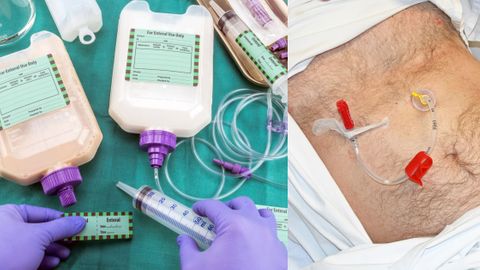Blog
How to Stop Losing Focus and Ace Your Nursing Exams
Chioma Okeke
Nursing exams can feel like a daunting obstacle course, especially when you’re trying to balance study time with the demands of your everyday life. Losing focus is a common challenge for many nursing students, but with the right strategies, you can boost your concentration and improve your exam performance. Here’s a guide to help you stay on track and make the most of your study sessions.
1. Create a Study Schedule
One of the biggest reasons for losing focus is not having a clear plan. Without a structured schedule, it’s easy to get overwhelmed or distracted. Start by setting aside dedicated study times each day and stick to them. Break down your study material into manageable chunks and allocate specific times to cover each topic. This approach will help you stay organized and make your study sessions more productive.
2. Set Specific Goals
Instead of vague objectives like “study for nursing exam,” set clear, achievable goals for each...
moreUnderstanding Tube Feedings: A Comprehensive Overview
Understanding Tube Feedings: A Comprehensive Overview
### Understanding Tube Feedings: A Comprehensive Overview
In the realm of medical nutrition, tube feedings, or enteral feeding, play a crucial role in supporting individuals who cannot consume adequate nutrition orally. This method of delivering nutrients directly into the gastrointestinal (GI) tract has evolved significantly, offering a lifeline to patients with various health conditions. In this blog post, we will delve into what tube feedings are, their types, purposes, benefits, and potential challenges.
#### What Are Tube Feedings?
Tube feedings involve providing nutrition through a tube that is inserted into the gastrointestinal tract. This method is often employed when a patient’s ability to eat or drink is compromised due to conditions such as stroke, severe neurological disorders, head and neck cancers, or gastrointestinal surgeries. The feedings ensure that the patient receives essential nutrients, including proteins, carbohydrates, fats, vitamins, and minerals, necessary for maintaining health and promoting recovery.
#### Types of Tube...
moreFNP
The FNP exam stands for Family Nurse Practitioner exam. It is a comprehensive assessment that registered nurses who wish to become certified as Family Nurse Practitioners must pass in order to practice in this specialized field of nursing. The exam is designed to evaluate the nurse's knowledge and skills in areas such as family assessment, health promotion, disease prevention, and management of common acute and chronic health conditions across the lifespan. This exam is typically a requirement for licensure as a Family Nurse Practitioner in many states and is administered by organizations such as the American Nurses Credentialing Center (ANCC) or the American Academy of Nurse Practitioners Certification Board (AANPCB). Passing the FNP exam demonstrates that a nurse has the expertise and qualifications necessary to provide primary care to individuals and families in a variety of healthcare settings.
To pass the Family Nurse Practitioner (FNP) exam, it is essential to start by thoroughly reviewing the exam content outline provided by the certifying body. Familiarize yourself...
moreNCLEX-RN
The NCLEX-RN exam, or the National Council Licensure Examination for Registered Nurses, is a standardized test that all aspiring nurses in the United States must pass in order to obtain their nursing license. This exam is designed to assess the knowledge, skills, and abilities that are essential for safe and effective practice as a registered nurse. The NCLEX-RN exam is computer-adaptive, which means that the difficulty of the questions adjusts based on the test-taker's responses. It covers a wide range of topics, including physiological and psychosocial integrity, health promotion and maintenance, safe and effective care environment, and more. Passing the NCLEX-RN exam is a crucial step towards becoming a licensed registered nurse and pursuing a career in nursing.
Passing the NCLEX-RN exam is a crucial step towards becoming a licensed registered nurse. To succeed in this exam, it's important to start by familiarizing yourself with the test format and content. Utilize official NCLEX-RN review materials and practice tests to get a sense of the types of questions that will be...
moreNCLEX-PN
The NCLEX-PN, or National Council Licensure Examination for Practical Nurses, is a standardized test that aspiring practical/vocational nurses in the United States must pass in order to obtain their nursing license. The exam is designed to assess the knowledge, skills, and abilities necessary for safe and effective practice as an entry-level practical/vocational nurse.
The NCLEX-PN covers a wide range of topics related to nursing practice, including safe and effective care environments, health promotion and maintenance, psychosocial integrity, and physiological integrity. It consists of multiple-choice questions that test the test-taker's critical thinking skills and ability to apply nursing knowledge in various clinical scenarios.
Inside of our School of the NCLEX Course, you will learn a variety of different topics to help you pass this exam
Passing the NCLEX-PN is a crucial step in becoming a licensed practical/vocational nurse and is required by state nursing boards for licensure. It is...
moreTEAS
The TEAS exam, which stands for Test of Essential Academic Skills, is a standardized test commonly used as part of the admissions process for nursing and allied health schools in the United States. The exam is designed to assess a student's knowledge and skills in areas such as reading, math, science, and English language usage. It helps schools evaluate a candidate's preparedness for the rigorous coursework involved in healthcare programs.
The TEAS exam consists of multiple-choice questions and is timed, typically lasting around four hours. It covers a wide range of subjects relevant to the healthcare field, including anatomy and physiology, biology, chemistry, and physics. Many students prepare for the exam by studying from review books, taking practice tests, and utilizing online resources to ensure they are ready for the challenging questions they may encounter. Scoring well on the TEAS exam is important for aspiring healthcare professionals as it can impact their chances of being admitted to their desired programs.
To pass the TEAS (Test of Essential Academic...
moreHESI-A2
Welcome to the lesson on the HESI A2 exam! This exam is a standardized test used to evaluate the academic readiness of potential nursing students. It is often required by nursing schools as part of their admissions process. The HESI A2 exam covers a variety of subjects, including math, reading, vocabulary, grammar, anatomy and physiology, and critical thinking.
It is designed to evaluate the potential success of students in healthcare programs by measuring their understanding of key concepts necessary for these fields.
The HESI A2 exam typically consists of around 300 questions and may vary in length depending on the institution. Some schools may also require additional sections like critical thinking. It is important for students to prepare for the exam by reviewing relevant material, practicing sample questions, and familiarizing themselves with the format of the test. Doing well on the HESI A2 exam can greatly enhance a student's chances of being accepted into their desired nursing or healthcare program.
To register for the HESI A2 exam, you will first need...
moreTOP 5 LOWEST NCLEX PASSING RATE STATES
Chioma Okeke
Today we are bringing some important facts to you. I recently did some research and I wanted to share with you the top five lowest NCLEX passing rates by states within the past year.
#5- Florida – We all know about Operation Nightingale and the recent scandal that took place with so many nursing schools with the state of Florida being one of the central locations. But it looks like it is definitely reflecting and showing in the NCLEX passing rates. Let us remember this is in the past year so one can only imagine what the numbers will look like once the Next Generation NCLEX arrives next month.
#4- Maryland – This one surprised me a little bit. I’ve been speaking with a number of individuals via Zoom who graduated from a nursing school in Maryland and they still haven’t passed many years later. it’s kind of scary because they often are not aware that they are not the only one.
#3- New York – Now one of the things that really separates New York from all the other states within the country is that they have an unlimited number of tries graduates can take the exam....
moreHOW TO UNDERSTAND MED SURG
Chioma Okeke
Do you struggle with really grasping and understanding medical surgical nursing? I know I did. I am going to use this article to hopefully really help you to better understand how to learn and retain your understanding of medical surgical nursing.
Let’s get started.
The very beginning of really grasping med surg is making sure you really first understand the basics. A lot of times, the reason why you are struggling to retain different areas in med surg is because there are some holes in your foundation of the fundamentals behind nursing. Here are some examples of what I mean by this.
Fluid and Electrolytes
Part of really understanding medical surgical nursing is that you need to first grasp how fluid and electrolytes work. You want to know and learn different concepts such a osmosis and diffusion. This also ties into microbiology as well which is the study of microorganisms. Understanding fluid and electrolytes involves the movement of particles through the cell. When you understand this, it helps you to better understand why we do or do not do certain...
more21 THINGS YOU CAN DO TO INCREASE YOUR CHANCES OF PASSING THE NCLEX
Chioma Okeke
Struggling to pass your NCLEX exam? Here is a list of 21 different things you can do to increase your chances of passing.
- Study with a partner
- Create a study plan
- Take notes when you listen NCLEX trainings
- Study nearly everyday
- Use visual aides
- Go to the library
- Keep your vision in front of you
- Don’t talk to negative people
- Join study groups where they post updates about the exam
- Attend a review class
- Study your weak areas
- Study anatomy and physiology
- Study pharmacology first
- Create flash cards
- Create audio flashcards
- Identify the pathophysiology of each disease pattern
- Use comprehensive books to supplement your learning
- Get tutoring
- Ask people to help you
- Keep a list of keywords
- Learn multiple strategies



